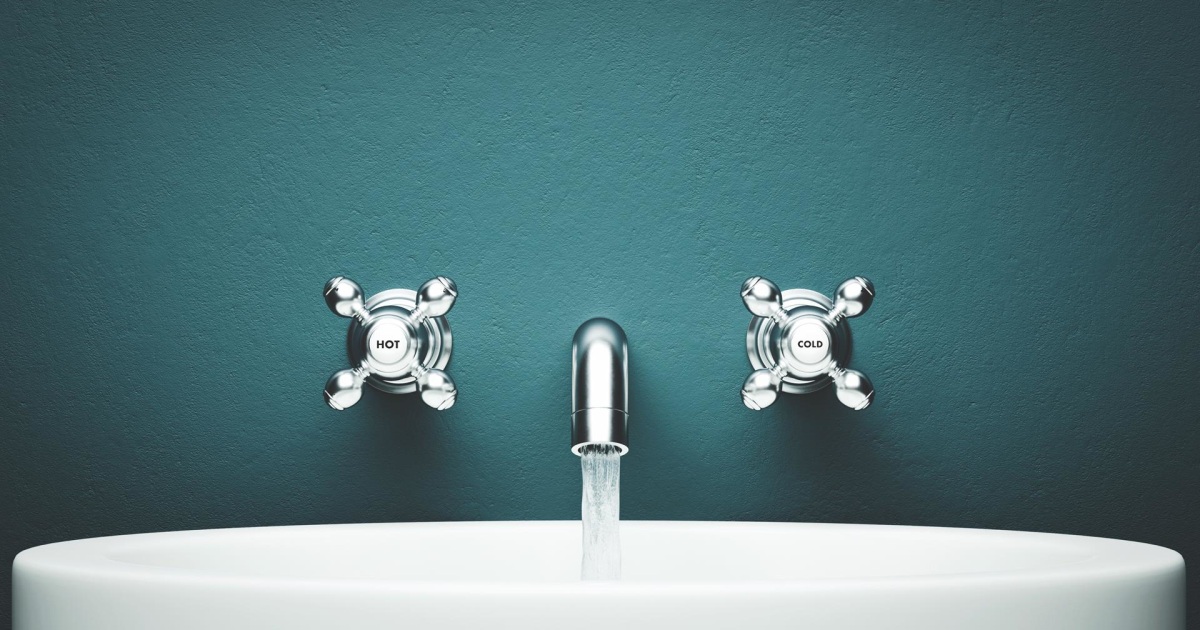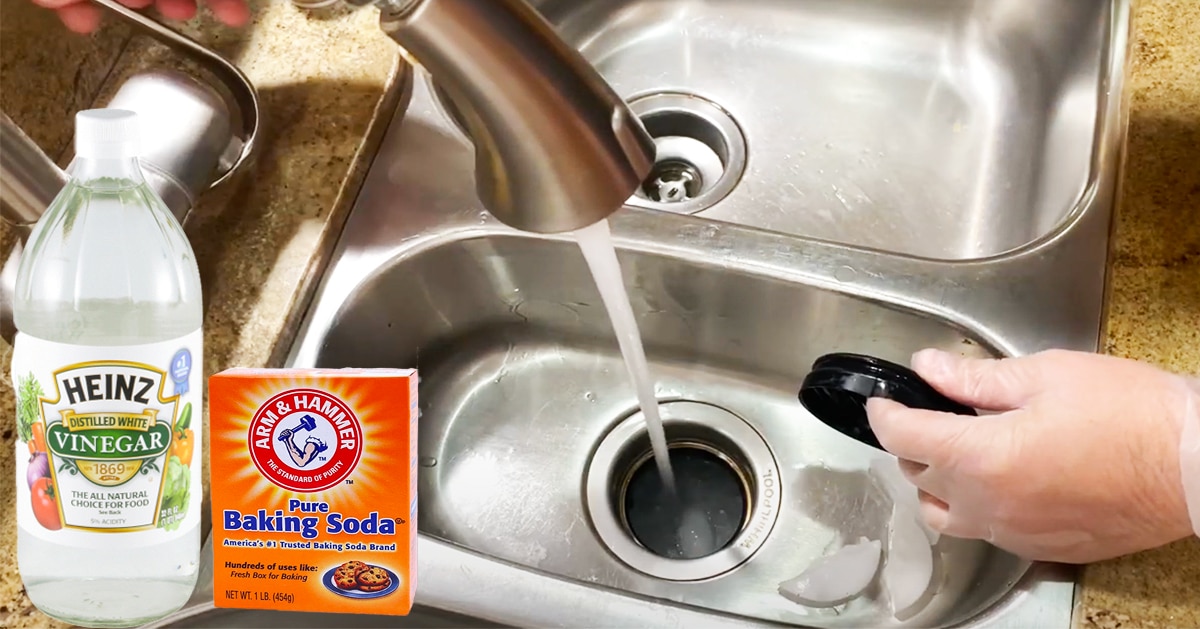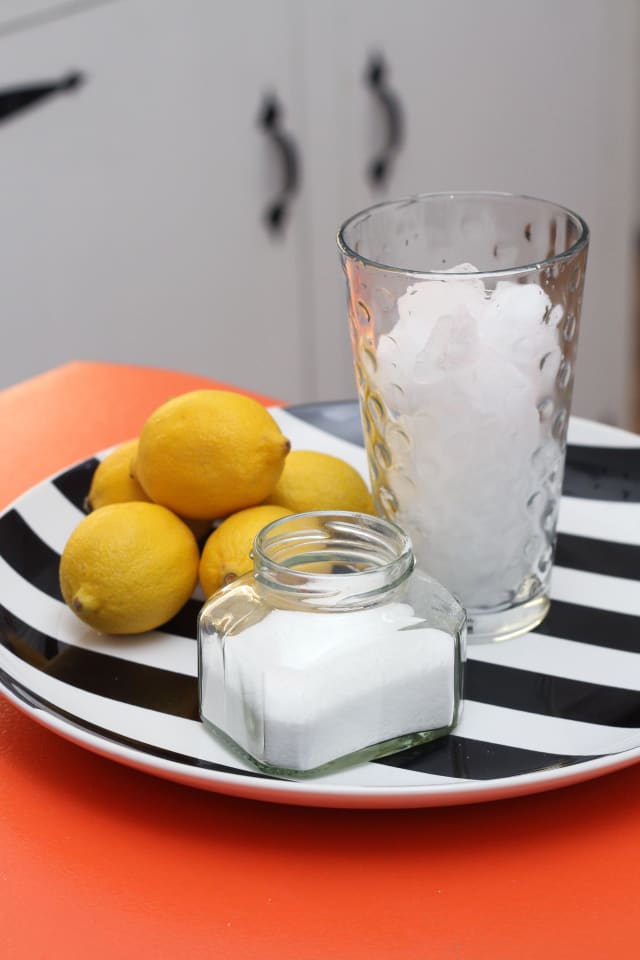A smelly kitchen sink can be a nuisance, but with the right cleaning techniques, you can eliminate odors and keep your sink smelling fresh. One of the most effective ways to clean a smelly kitchen sink is to start by flushing the drain with hot water. Run hot water down the drain for several minutes to help loosen and flush away any food particles, grease, or other debris that may be causing the odor.
After flushing the drain, it’s important to clean the sink basin thoroughly. Use a mild dish soap and warm water to scrub the sink basin, paying special attention to areas around the drain and faucet where food particles and soap scum can accumulate. A soft-bristled brush or sponge works well for scrubbing the sink basin and removing stubborn stains and residue.

For stubborn odors, you can also try using baking soda and vinegar to clean the sink. Sprinkle baking soda liberally over the bottom of the sink basin, then pour a cup of vinegar down the drain. The baking soda and vinegar will react to create a foaming action that helps break down and eliminate odors. Allow the mixture to sit for several minutes before rinsing the sink thoroughly with hot water.
Another effective way to clean a smelly kitchen sink is to use a commercial drain cleaner or enzyme-based cleaner specifically designed to break down organic matter and eliminate odors. Follow the manufacturer’s instructions carefully when using these products, and be sure to wear gloves and eye protection as directed.

Once you’ve cleaned the sink basin and flushed the drain, it’s important to maintain good kitchen hygiene to prevent odors from returning. Avoid putting food scraps, grease, or other debris down the drain, as these can contribute to foul odors over time. Instead, scrape food scraps into the trash and use a sink strainer to catch any remaining debris before it can enter the drain.
Additionally, consider incorporating regular cleaning and maintenance into your kitchen routine to keep your sink smelling fresh. Wipe down the sink basin with a mild disinfectant cleaner or vinegar solution daily to remove surface grime and bacteria. Periodically, treat the sink drain with baking soda and vinegar or a commercial cleaner to prevent buildup and keep odors at bay.

Common mistakes to avoid when cleaning a smelly kitchen sink include:
Neglecting to clean the sink drain: Odors in the kitchen sink are often caused by buildup and debris in the drain. It’s important to clean the sink drain regularly to prevent odors from recurring.
Using harsh chemicals: While commercial drain cleaners can be effective at removing odors, they can also be harsh on your plumbing and the environment. It’s best to use natural cleaning solutions like baking soda and vinegar whenever possible.
Failing to address the source of the odor: Simply masking the odor with air fresheners or scented cleaners won’t solve the problem long-term. It’s important to identify and address the source of the odor to prevent it from returning.
Ignoring kitchen hygiene: Poor kitchen hygiene, such as leaving food scraps in the sink or neglecting to clean the sink basin regularly, can contribute to foul odors. It’s essential to maintain good kitchen hygiene practices to keep your sink smelling fresh.
Overlooking professional help: If you’ve tried various cleaning methods and the odor persists, it may be a sign of a more serious plumbing issue. In such cases, it’s best to seek professional help to identify and resolve the underlying problem.
Why does my kitchen sink smell bad even after cleaning?
Persistent odors in the kitchen sink can be caused by a variety of factors, including buildup in the drain, food particles trapped in the garbage disposal, or plumbing issues. It may be necessary to identify and address the specific source of the odor to eliminate it effectively.
Can I use bleach to clean my kitchen sink?
While bleach can be effective at killing bacteria and eliminating odors, it’s important to use it sparingly and with caution, as it can be harsh on certain materials and may damage your plumbing if used improperly. Consider using natural cleaning solutions like baking soda and vinegar as a safer alternative.
How often should I clean my kitchen sink to prevent odors?
To prevent odors and keep your kitchen sink clean and fresh, it’s a good idea to clean it regularly as part of your weekly cleaning routine. Wipe down the sink basin daily with a mild disinfectant cleaner or vinegar solution, and treat the sink drain with baking soda and vinegar or a commercial cleaner periodically to prevent buildup.
Can I pour boiling water down the kitchen sink drain to eliminate odors?
While pouring boiling water down the drain can help loosen and flush away debris that may be causing odors, it’s important to use caution to avoid damaging your pipes. Consider using hot water instead of boiling water, and avoid pouring it directly onto any plastic or PVC components of your plumbing.
What should I do if the odor in my kitchen sink persists despite cleaning?
If the odor in your kitchen sink persists despite cleaning, it may be a sign of a more serious plumbing issue, such as a clog or a damaged pipe. In such cases, it’s best to seek professional help from a plumber to identify and resolve the underlying problem.

Kitchen Sink Smells Pics – cabinets for kitchens design ideas

How To Clean A Smelly Garbage Disposal

Simple Ways to Clean a Bathroom Sink Drain

Why Does My Kitchen Sink Smell Like Sewer? Tiny Kitchen Divas

spring cleaning tasks you can do in 1 minute or less Reader’s Digest New Zealand

Help, My House STINKS! How To Get Rid Of Smells For Good – Expert Home Tips

How to Clean a Garbage Disposal

Avoid Kitchen Island Odor

Effective Ways on How to Get Rid of Kitchen Sink Smell

Related Posts:
- Reglazing Porcelain Kitchen Sink
- Kitchen Island Sink Plumbing Vent
- Little Bugs In Kitchen Sink
- Kitchen Sink Drain Clogged Past Trap
- Single Bowl Corner Kitchen Sink
- Single Bowl Kitchen Sink Pros And Cons
- White Ceramic Single Bowl Kitchen Sink
- Kitchen Sinks New Zealand
- How To Connect Pvc Pipe Under Kitchen Sink
- Oxo Kitchen Sink Strainer
